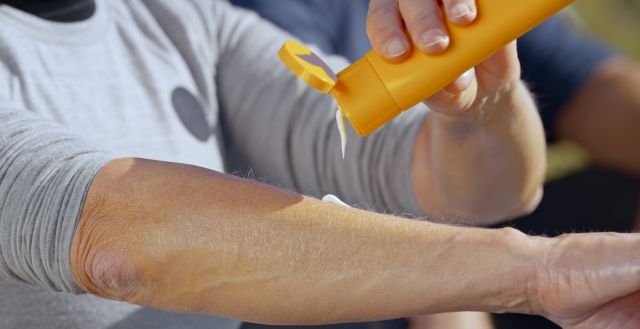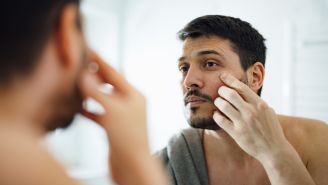Updated on April 2, 2024.
Skin cancer is the most common cancer in the United States and around the world. One in five U.S. adults will develop the disease by the time they are 70-years old. The increase in cases of these cancers may be due to a combination of factors, including better detection, more sun exposure among the U.S. population, and the fact that more people are living longer. Although melanoma is the most deadly form of skin cancer, basal cell carcinoma (BCC) is the most common. Roughly 3.6 million cases of BCC are diagnosed in the United States each year.
What causes BCC?
Most skin cancers are associated with exposure to ultraviolet (UV) radiation from the sun, especially when your skin is unprotected. This includes both cumulative exposure that occurs over years, as well as bouts of intense exposure, such as a severe sunburn you got at the beach one summer.
What are the symptoms of BCC?
Basal cell carcinoma often looks like an open sore, particularly one that doesn't heal or that heals only to return. It may also bleed, ooze, or form a crust. It is generally red or pink, but may also be brown, black, yellow, or white. It may also appear as a patch of peeling skin or a shiny bump.
If you develop a new skin marking that resembles a mole, a growth, or any kind of change to your skin, you should get it checked out by your healthcare provider (HCP). Health issues, including skin cancer, tend to be more easily treated when they are detected early.
Where does BCC tend to develop?
Basal cell carcinoma usually develops on areas of the skin that are often exposed to the sun, such as the face, ears, neck, scalp, shoulders, and back. Unlike melanoma, BCC doesn't usually metastasize, or spread. But it can be disfiguring, particularly if it develops on the face or head.
How can you prevent BCC?
The best way to lower your risk of basal cell carcinoma is to limit your exposure to sun and other artificial forms of UV light, such as indoor tanning beds. In fact, indoor tanning can increase the risk of developing BCC by 24 percent, according to the American Academy of Dermatology. Follow these sun-safety pointers:
- Try to avoid direct sun between 10 a.m. and 4 p.m.
- As much as possible, avoid sunburns. Many sunburns are unintentional and result from sun exposure when sun protection has been forgotten or not available. Plan ahead with sun protection.
- Cover up with clothing, especially clothing with built-in sunscreen if you’re somewhere with high sun exposure.
- Always skip tanning salons and UV booths.
Above all, wear sunscreen year-round, not just in the summer. Use a broad-spectrum sunscreen that has a sun protective factor (SPF) of 30 or higher. Even in the winter, apply sunscreen to your face and neck every day.
Be especially careful with children and infants, who are even more susceptible to the results of UV exposure. Research has shown that UV exposure in childhood and the teenage years has the greatest impact on one’s eventual risk of skin cancer.
What are the treatments for BCC?
Treatment will depend on whether the skin cancer is early stage or more advanced (more likely to spread to other areas of the body, or has already spread), tumor size and location, and your general health and preferences. When caught early enough or when the tumor is small, most treatments for BCC can be performed in your HCP's office without much pain and little scarring. If you have a small tumor, it's less likely to recur than a large tumor, although tumors that grow back can also typically be treated effectively.
BCC treatments include:
- Topical medications applied to the skin
- Electrosurgery which uses electricity to make precise cuts and remove the tumor
- Excisional surgery which removes the tumor using a cutting tool
- Mohs surgery which cuts out very thin, microscopic layers of skin and keeps as much healthy tissue as possible
- Radiation therapy which uses high-dose xrays
- Photodynamic therapy which combines drugs and light aimed at the tumor to kill cancer cells
- Cryosurgery which uses extreme cold to destroy cancer cells
- Laser surgery which uses light beams to treat the cancer
In rare cases where the BCC spreads to other parts of the body, a targeted drug directed at specific changes in cancer cells may slow their growth.







